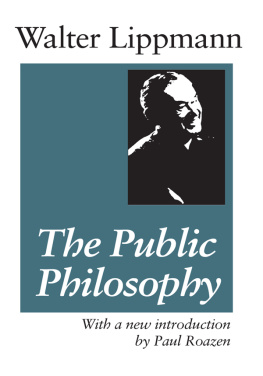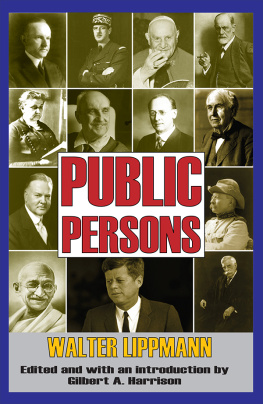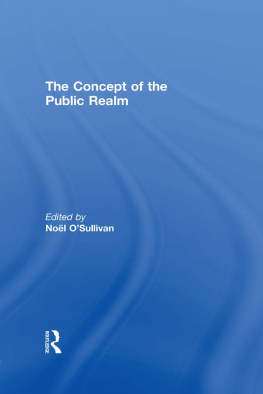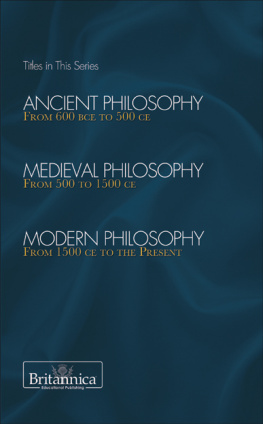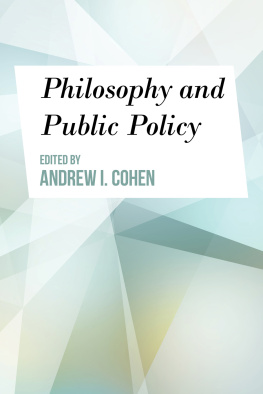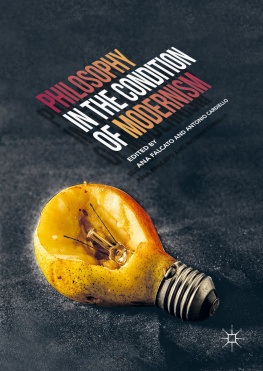THE PUBLIC PHILOSOPHYTransaction Books by Walter Lippmann
Force and Ideas: The Early Writings
With an introduction by Arthur Schlesinger, Jr.
Public Opinion
With an introduction by Michael Curtis
Liberty and the News
American Inquisitors
The Phantom Public
The Method of Freedom
The Public Philosophy
A Preface to Morals
THE PUBLIC PHILOSOPHY
WALTER LIPPMANN
with a new introduction by
PAUL ROAZEN
Originally published in 1955 as Essays in the Public Philosophy by Little, Brown, and Company in association with the Atlantic Monthly Press.
Published 1989 by Transaction Publishers
Published 2017 by Routledge
2 Park Square, Milton Park, Abingdon, Oxon 0X14 4RN
711 Third Avenue, New York, NY 10017, USA
Routledge is an imprint of the Taylor & Francis Group, an informa business
New material this edition copyright 1989 by Taylor & Francis.
All rights reserved. No part of this book may be reprinted or reproduced or utilised in any form or by any electronic, mechanical, or other means, now known or hereafter invented, including photocopying and recording, or in any information storage or retrieval system, without permission in writing from the publishers.
Notice:
Product or corporate names may be trademarks or registered trademarks, and are used only for identification and explanation without intent to infringe.
Library of Congress Catalog Number: 89-4475
Library of Congress Cataloging-in-Publication Data
Lippmann, Walter, 1889-1974.
The public philosophy / by Walter Lippmann ; with a new introduction by Paul Roazen.
p. cm.
Reprint. Originally published: Boston: Little Brown, 1955.
ISBN 0-88738-791-8
JC251.L47 1989
ISBN 13: 978-0-88738-791-3 (pbk)
To HelenThey are ill discoverers
that think there is no land,
when they see nothing but sea.
BACON. Advancement of
Learning, II: VII, 5
Contents
THE 1955 publication of Lippmanns Essays in the Public Philosophy aroused a controversy in which intellectuals felt they had to take sides. Dwight D. Eisenhower was in his third year as president, and what Lippmann saw as the incompetence of small-town businessmen in high public office helped to evoke his most elitist proclivities. The 1952 campaign that brought Eisenhowers Republicans to power had been publicly endorsed by Lippmann, who was then the most widely syndicated political columnist at work in the States. Lippmanns public standing was such that his backing of Eisenhower was considered politically significant and in itself an event that was genuinely newsworthy. Three years later, the election that had involved the defeat of Adlai Stevenson and the Democrats was yet a vivid memory.
The word liberal was in those days still being widely used in a positive sense. Although Woodrow Wilson had seen himself within a heritage of British liberalism, and Supreme Court justices in the interwar years might be called liberals, I believe that the terms liberal and liberalism only started appearing in the vocabulary of everyday U.S. political life in the early period of Franklin D. Roosevelts presidency; afterward they stood for the view point of the New Deal. When Lionel Trillings The Liberal Imagination was published in 1950, and then Louis Hartzs The Liberal Tradition in America in 1955, they were likemindedly innovative in relating the doctrines of classical European political and social thought to the special characteristics of U.S. life.
In the era of President Ronald Reagans immense popularity, none of the leading contenders in U.S. politics seemed eager to call on the tradition of liberalism. Yet its heritage is broader than those imply who have been so eager to stigmatize the word liberal as a politically dirty one. American liberalism has its roots in a European past and includes such heroes of the human spirit as John Milton, John Locke, and John Stuart Mill. It does not take much historical reflection to turn back to a founding father like Thomas Jefferson and the first paragraphs of his Declaration of Independence. In 1944 Gunnar Mydral put his finger on the paradox that liberalism in America is also traditionalistic; he wrote that America isconservative. But the principles conserved are liberal and some, indeed, are radical.1
During the 1988 presidential campaign, the word liberal was tarred and tainted in spite of being so intrinsic a part of U.S. heritage; but in 1955, the struggle was over the meaning and status of conservatism. Controversial books were then appearing from the Right written by such different thinkers as Russell Kirk, Peter Viereck, and Clinton Rossiter. An effort was being made to establish the legitimacy of conservative doctrine and to link conservative ideology to past figures in U.S. intellectual history. Although already partially disillusioned with Eisenhowers leadership, Lippmanns The Public Philosophy seemed to form part of what was thought of as a conservative reawakening; for a time, the book was a best seller. Archibald MacLeish was only one of its major critics, while General Charles de Gaulle, not yet back in power in France, was a noteworthy admirer of Lippmanns thesis.2
Lippmann was challenging the limits of the democratic publics rationality. His critique was considered telling not just because of the nature of the arguments he advanced, but due to his own stature in the history of twentieth-century political thought. He had begun his bookwriting career with his widely hailed A Preface to Politics (1913) and went on to be the foremost U.S. political pundit of the century. In the preWorld War I period, he was a part of the rising tide of the movement known as progressivism, and the figure of Theodore Roosevelt dominated his thinking (as it did someone like Felix Frankfurter) for the rest of his life. Soon after Woodrow Wilsons administration began, Lippmann shifted his partisan allegiances, but broadly speaking, his early work remained reformist and left wing. He was a member of the Harvard Class of 1910, and in college he had founded a socialist club; for a time, he worked with the Fabian Graham Wallas as well as the muckracker Lincoln Steffens. Lippmann emerged as a nondoctrinaire proponent of the possibilities within democracy for the deliberate mastery of public problems. He shared the optimistic hopes that the social environment could be shaped to fit institutions to fulfill the best human impulses.
The coming of World War I had forced Lippmann, like other Americans at the time, to try to fit their conceptions of democracy to the necessities of how a nation has to function in international affairs. His The Stakes of Diplomacy (1915) was path-breaking for its time. Lippmann went on to help draft propaganda literature on behalf of the Allied cause and then played an important part in drawing up Wilsons Fourteen Points. But for Lippmann, as for his friend John Maynard Keynes, the Treaty of Versailles was a great betrayal, and Lippmann felt forced to reconsider the ideals of self-government in the light of what he had seen of democracy in action.
Lippmann began to test his ideas about the problem of publicity and propaganda in his Liberty and the News (1919), and then his monumental Public Opinion (1922) was centrally concerned with the role of the irrational in democratic politics.3 Lippmann introduced a memorable contrast between the complexities of the world outside and the distortions inherent in our need for simplifying pictures in our heads. This antithesis between the immense social environment in which we live and our ability to perceive it only indirectly has continued to haunt democratic thinkers. Leaders acquire fictitious personalities, and symbols come to govern political behavior. Between each of us and the environment, there arises what Lippmann called a pseudoenvironment. He thought that political behavior was a response not to the real world but to those pseudorealities that we construct about phenomena beyond our direct knowledge.

